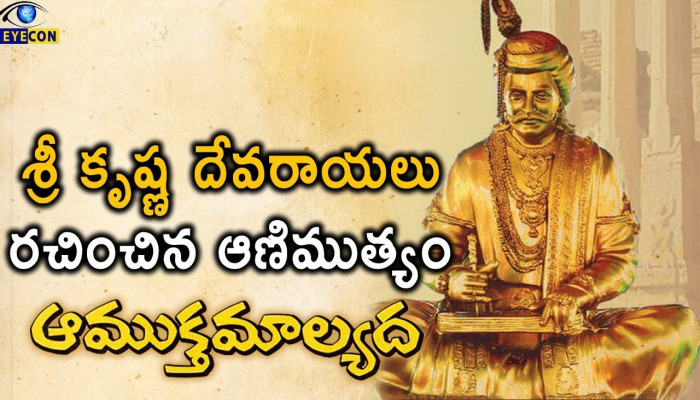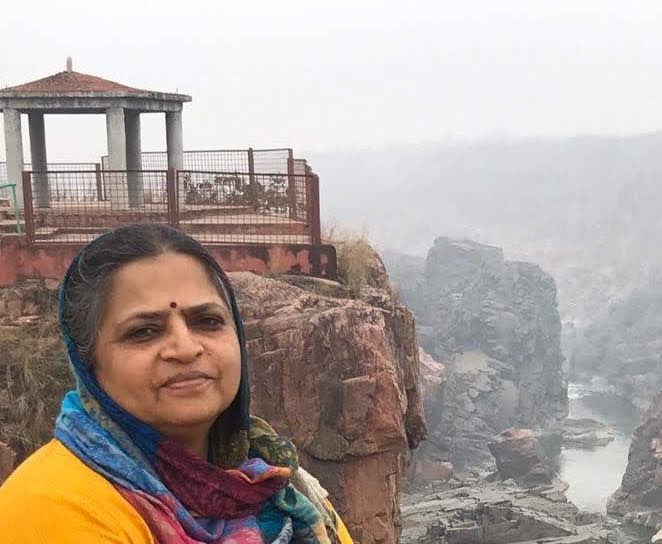The story of Sri Krishnadeva Raya’s Amukta Malyada
- In History & Culture
- 02:33 PM, Aug 12, 2021
- Sukanya Badri
The start of Dhanur masa is a very auspicious month for entire south India, that coincides with the month of Margazhi in the Tamil calendar, Margashirsh in Telugu, Kannada, Gujarati and Marathi calendars and Margashirsha or Paush month in the north Indian calendar. “Among the months, I am Margashirsha”, says Krishna in the Gita, highlighting its importance. This month is devoted to spiritual activities, temple visits, bhajans and discourses. The focus is on worship of the deities especially Vishnu and Lakshmi. Personal festivities such as marriages, are usually not celebrated during this time.
Along with Dhanur Masa comes the legend of Andal and her poem Thiruppavai. Many Vaishnavite temples, especially in Tamil Nadu, replace the morning rituals like Suprabhatam with Thiruppavai renditions. An anthology of 30 short Tamil poems or Pasurams, one for a day, Thiruppavai was composed by Andal also known as Goda. She was the only woman amongst the twelve Vaishnavite saints or Alwars, who lived between 6-9th centuries propagating the Bhakti movement. These 12 alwars have authored the 4000-hymn Divya Prabhandham which is considered as sacred as the Vedas by Vaishnavites in the south.
Most would know about Andal as she has been written about extensively, especially in Tamil literature, even though historical records about her are scarce.
But do you know that Andal’s story was also written by Krishnadeva Raya, the Emperor of Vijayanagar kingdom and one of our greatest ever kings, based on a divine command?
His Amukta Malyada is an epic about the life of Goda Devi or Andal, whose garland of devotion was accepted by Sri Ranganatha, reigning deity of Srirangam in Tamil Nadu. This epic written by Krishnadeva Raya has the pride of having given the people of Andhra region the inspiring sentence: “Telugu is the best among the country’s languages”.
I came across an excellent English translation and commentary, “Goda’s Garland of Devotion” by Dr. Prema Nandakumar. The richness of the prose as well as the devotion and knowledge of Krishnadeva Raya comes through strongly even in the translation, a tribute to the highly accomplished translator.
Krishnadeva Raya was an emperor of great magnificence and charisma in 16th century India. Crowned king in 1509 under difficult circumstances, he had to wage relentless battles to preserve the Vijayanagara empire. His rule can be described as a glorious chapter in the history of the Empire and perhaps amongst Indian rulers too. An excellent general, he extended his empire across south India and also overcame the threats from the sultanates of the Deccan. Highly cultured and spiritual, Krishnadeva Raya also built several temples in the south, propagated the 12 alwar saints, patronised Telugu, Sanskrit, Kannada and Tamil poets, and has himself written several books in Sanskrit.
But how did Krishnadeva Raya get to write this story? He explains in the preamble. “Sometime ago, I led my army to defeat the kingdom of Kalinga. On the way, I spent a few weeks at Srikakulam near Vijayawada. The Andhra Maha Vishnu temple famous for Ekadashi darshan, is located here. On Ekadashi night which I spent here having fasted that day, I had a dream towards dawn in which the deity Andhra Vishnu appeared looking resplendent alongwith his consort Lakshmi, and told me: “You have written several works in Sanskrit. Write a poem in Telugu that would please me. Let the theme be about my wedding with Goda Devi at Srirangam. By describing the story of Goda Devi who gave me her garland, you will make me happy”.
The king himself wondered why Telugu? He got his answer from Vishnu in the dream itself. “Why Telugu?' It is because this is Telugu country and I am a Telugu king. Telugu is sweet. After speaking with all the kings that serve you, didn’t you realize – amongst all the languages in the land, Telugu is the best!" Vishnu also instructs the king that the epic he was to write should be dedicated to Sri Venkateshwara – subtly highlighting that while there are different forms of deities whom we worship, they are all one and the same, which is Narayana.
Tasking a king on the eve of a very important battle to write an epic implied everlasting fame for Krishnadeva Raya not from just war but from spiritual acclaim too, apart from his literary skills. The dream was interpreted by his courtiers as a precursor to many good things – a further accession of faith towards God, increase in the king’s knowledge, more prosperity and elevation in status, lasting friendships, etc.
The deity’s words, “Desha Bhashalandu Telugu Lessa” meaning “of all the languages of the land, Telugu stands out the best” certainly propelled the Telugu language to a high status and Telugu literature has only gained from it! It is also a firm belief that this book, through its presence and popularity, helped Vaishnavism to take strong roots in Andhra region, supporting the efforts of the Alwars and Acharyas.
The book Amukta Malyada, while unravelling the legend of Andal, also talks about the principles of an ideal political administration. The king expresses his ideas and observations through the descriptions of cities, towns, villages, people, dress, dishes, and elegant life. One can imagine vividly the richness of life in those days, even if the king had exercised his poetic license while writing!
This masterpiece on the life of a Tamil Vaishnavite saint is even more commendable since Krishnadeva Raya was neither closely associated with any Tamil poet nor a known writer in Telugu language. That Amukta Malyada crossed all boundaries and even centuries later occupies the exalted position of an acclaimed epic only highlights the capabilities of the spiritual and learned king who wrote it!
Sources:
- Goda’s Garland of Devotion – An Introduction to Amukta Malyada by Krishnadeva Raya, by Prema Nandakumar
- The King's Divine Dream - The Legend of Andal Part 1 | Margazhi Special
Image Source: You Tube







Comments